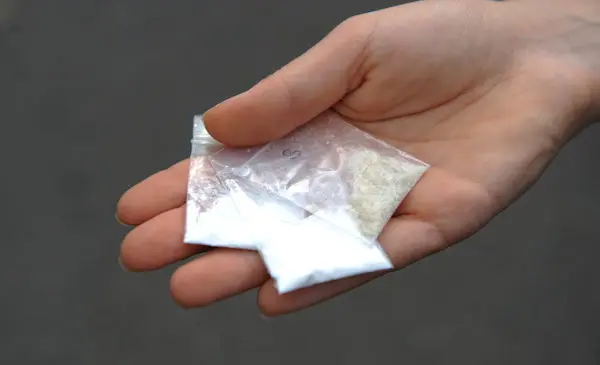What Does Molly Do To You: Molly, also known as MDMA, is a synthetic drug that has stimulant and hallucinogenic effects. It is often taken in pill or powder form, and is commonly associated with the rave and club scene. Let’s now discuss more about “what does molly do to you” and what are some of the effects of MDMA?
- What are the side effects of MDMA Molly?
- How does Molly work?
- Is Molly safe?
- What are the long-term effects of Molly?
- How can I stay safe if I take Molly?
- Where can I get help if I have a problem with Molly?
- FAQs
- What is Molly?
- What are the side effects of Molly?
- What is the difference between Molly and ecstasy?
- What are the legal implications of using Molly?
- How can I get help if I have a problem with Molly?
What are the side effects of MDMA Molly?
The effects of Molly vary depending on the dose, but typically include feelings of euphoria, increased energy, empathy, and intimacy. Users may also experience a distorted sense of time and space, and heightened sensory perception.
The effects of Molly vary depending on the dose but typically include feelings of euphoria, increased energy, empathy, and intimacy. Users may also experience a distorted sense of time and space, and heightened sensory perception.
Here are some of the short-term effects of Molly:
- Euphoria
- Increased energy
- Empathy
- Intimacy
- Distorted sense of time and space
- Heightened sensory perception
- Increased heart rate
- Increased blood pressure
- Sweating
- Chills
- Teeth clenching
- Muscle tension
- Nausea
- Vomiting
- Blurred vision
- Hallucinations
- Seizures
- Stroke
- Death
How does Molly work?
Molly works by increasing the activity of three neurotransmitters in the brain: dopamine, norepinephrine, and serotonin. These neurotransmitters are involved in regulating mood, pleasure, and social behavior.
Is Molly safe?
Molly is not safe. It can cause a number of serious health problems, including:
- Increased heart rate and blood pressure
- Hyperthermia (dangerously high body temperature)
- Seizures
- Stroke
- Death
What are the long-term effects of Molly?
The long-term effects of Molly are not fully understood, but research suggests that it can cause damage to the brain and nervous system. Some of the long-term effects of Molly include:
- Depression
- Anxiety
- Memory problems
- Sleep problems
- Difficulty concentrating
- Irritability
- Apathy
How can I stay safe if I take Molly?
If you are considering taking Molly, there are a few things you can do to stay safe:
- Test your Molly to make sure it is actually MDMA.
- Start with a low dose and increase it gradually if needed.
- Drink plenty of water to stay hydrated.
- Take breaks from dancing and other activities to cool down.
- Don’t mix Molly with other drugs.
Where can I get help if I have a problem with Molly?
If you are struggling with a Molly addiction, there are resources available to help you. You can talk to your doctor, a therapist, or a support group. There are also hotlines and websites that can provide information and support.
FAQs
What is Molly?
Molly is a slang term for MDMA, a synthetic drug that has stimulant and hallucinogenic effects. It is often taken in pill or powder form, and is commonly associated with the rave and club scene.
What are the side effects of Molly?
The effects of Molly vary depending on the dose, but typically include feelings of euphoria, increased energy, empathy, and intimacy. Users may also experience a distorted sense of time and space, and heightened sensory perception.
What is the difference between Molly and ecstasy?
Molly and ecstasy are both forms of MDMA, but they are not the same thing. Molly is typically thought of as the pure form of MDMA, while ecstasy is often mixed with other drugs, such as caffeine, methamphetamine, or ketamine.
What are the legal implications of using Molly?
The legal implications of using Molly vary depending on the country or state. In the United States, MDMA is a Schedule I drug, which means that it has a high potential for abuse and no currently accepted medical use. Possession of MDMA is a felony in most states.
How can I get help if I have a problem with Molly?
If you are struggling with a Molly addiction, there are resources available to help you. You can talk to your doctor, a therapist, or a support group. There are also hotlines and websites that can provide information and support.
Read More: What Does Molly Do To You- Wellbutrin XL: Benefits, Side Effects, and Important Safety Considerations
- Ultram (Tramadol) – A Complete Guide for Safe Pain Management
- Topamax (Topiramate) Explained: Benefits, Side Effects, and Precautions
- Roxicodone: How It Works, Its Side Effects, and Safe Use Practices
- Qsymia: The Prescription Medication for Effective Weight Loss
- Paxil (Paroxetine): A Complete Guide for Safe and Effective Use
- OxyContin: A Prescription Painkiller with Serious Risks
- Neupogen: A Comprehensive Guide to Uses, Side Effects, and Administration
- Mirapex Overview: Understanding Its Uses, Side Effects, and Proper Dosage
- Kybella Treatment for Double Chin: Benefits, Procedure, Side Effects, and More

I am a passionate technology and business enthusiast, constantly exploring the intersection where innovation meets entrepreneurship. With a keen eye for emerging trends and a deep understanding of market dynamics, I provide insightful analysis and commentary on the latest advancements shaping the tech industry.
